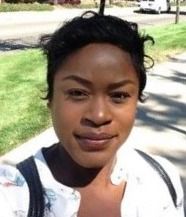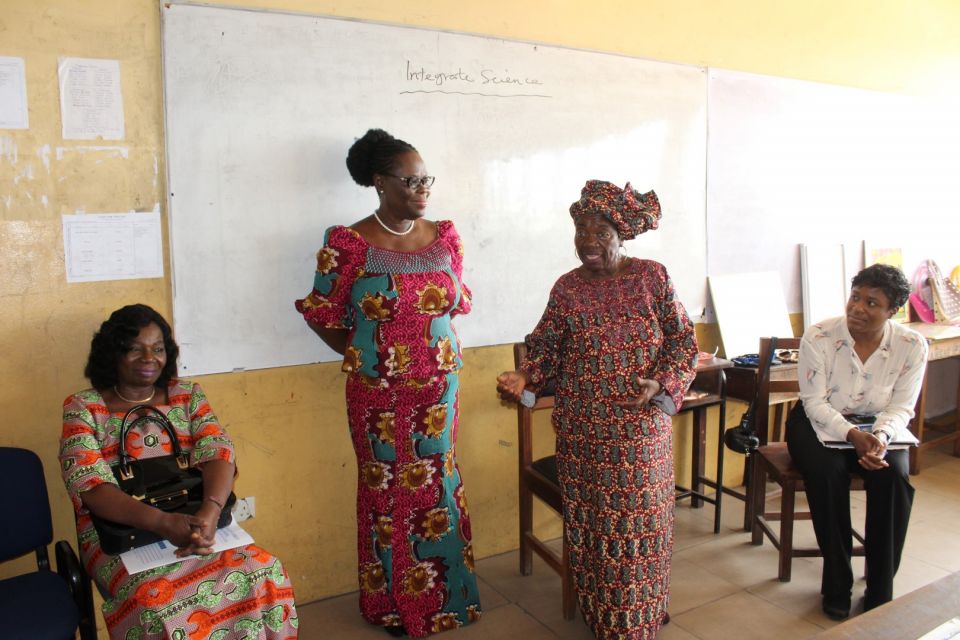
Cite as:
Okune, Angela. 2018. "Holly Okonkwo." In STS in "Africa" Personal Careers. In STS in "Africa" in Formation, created by Angela Okune and Aadita Chaudhury. In STS Across Borders Digital Exhibit, curated by Aalok Khandekar and Kim Fortun. Society for Social Studies of Science. August.
Holly Okonkwo is a National Science Foundation Postdoctoral Fellow, researcher and professor in the Department of Anthropology and the Interdisciplinary Research Incubator for the Study of (In)Equality at the University of Denver. In Spring 2019, she will be joining the Department of Anthropology at Purdue University. Her work focuses on the situated knowledge production of women scientist and technologists of the African diaspora and the material and cultural practices of scientific knowledge production, learning and innovation. Her current project explores the experiences of women participating in international research projects and local science and technology development initiatives in and between Nigeria, Ghana and Europe. This project is in collaboration with the Ghana Academy of Arts and Sciences and faculty at the University of Benin in Nigeria.
This PECE essay helps to answer the STS Across Borders analytic question: “What people, projects, and products exemplify how this STS formation has developed over time?”
This essay highlights prominant and upcoming individuals working on critical science and technology issues in Africa and is part of a broader exhibit on "STS in Africa."
STS Across Borders is a special exhibit organized by the Society for Social Studies of Science (4S) to showcase how the field of Science and Technology Studies (STS) has developed in different times, places...Read more
Abstract: "From a seminary for newly freedwomen in the 19th century “Deep South” of the United States to a “Model Institution for Excellence” in undergraduate science, technology, engineering, and math education, the narrative of Spelman College is a critical piece to understanding the...Read more
HO: "My work overall focuses on the situated knowledge production of women scientist and technologists of the African diaspora and the material and cultural practices of scientific knowledge production, learning and innovation. My current project explores the experiences of women participating in international research projects and local science and technology development initiatives in and between Nigeria, Ghana and Europe. This project is in collaboration with the Ghana Academy of Arts and Sciences and faculty at the University of Benin in Nigeria."
HO: "I draw on Black feminist theory and postcolonial and feminist STS to examine the politics of race, gender, class and how they function as interlocking systems, to unevenly shape the so-called global landscapes of science and technology. I explore the ways racialized, gendered and colonial divisions of labor are reconfigured, challenged and preserved through transnational networks of scientific knowledge production and technology development initiatives."
HO: "My mentor, Yolanda Moses and the scholarship of Clapperton Mavhunga, Sandra Harding, Safiya Noble and Ron Eglash. My work is also largely shaped by my experiences as a first-generation Nigerian American in science and technology communities in the US. I have always been uncomfortable with the ways normative notions of what it means to be a scientist, science work and innovation tend to reproduce barriers along the lines of gender, race, and place and the silencing of alternate ways of knowing. I found that these ideas are also salient within Nigerian/Nigerian-American scientific communities."

Source: Holly Okonkwo
HO: "The complexities of intellectual imperialism and colonialism that are continually reconfiguring yet still contested."
HO: "My collaborators refer to this as the "colonial flavor". It flavors local experiences explicitly through institutions and organizations and implicitly through ideas about the purpose and value of science and technology and the salience of christianity in the region."
HO: "Ghana Academy of Arts and Sciences (GAAS). President Aba Andam and Professor Emerita Elizabeth Ardayfio-Schandorf"
HO: "In collaboration with the GAAS president, I am with local girls high school to design an interactive science lab that employs critical STS and generative justice principles. We are still in the initial phases."